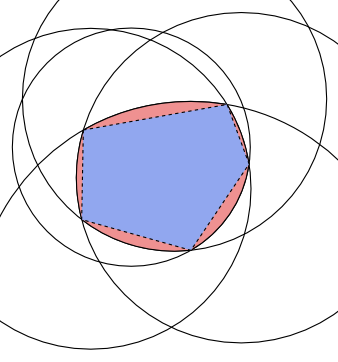Given is $n$ circles ($n \le 1000$) circles where the $x$- and $y$-coordinates of their centers, and their radii, are all at most $10^6$.
The problem is to find a point in $\mathbb{R}^2$ covered by all circles, or to determine that there is no such point.

